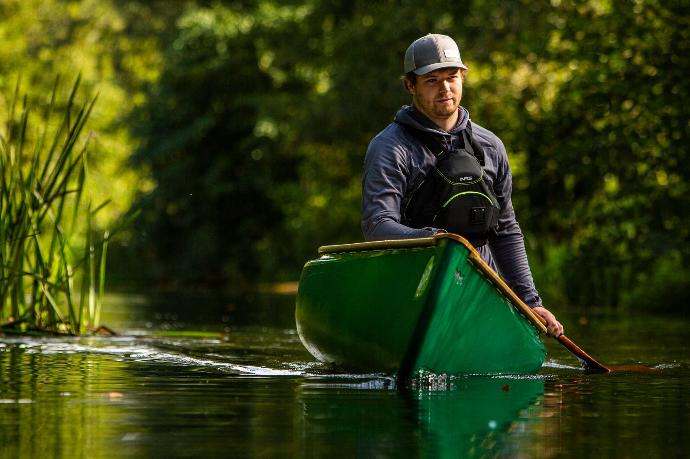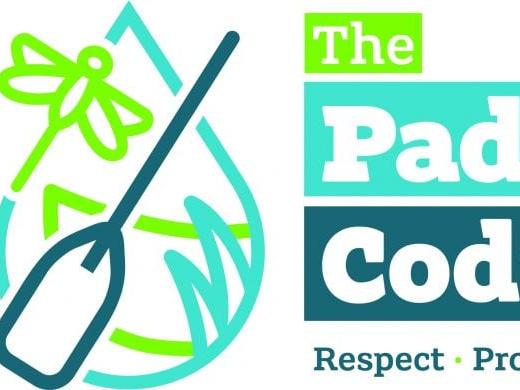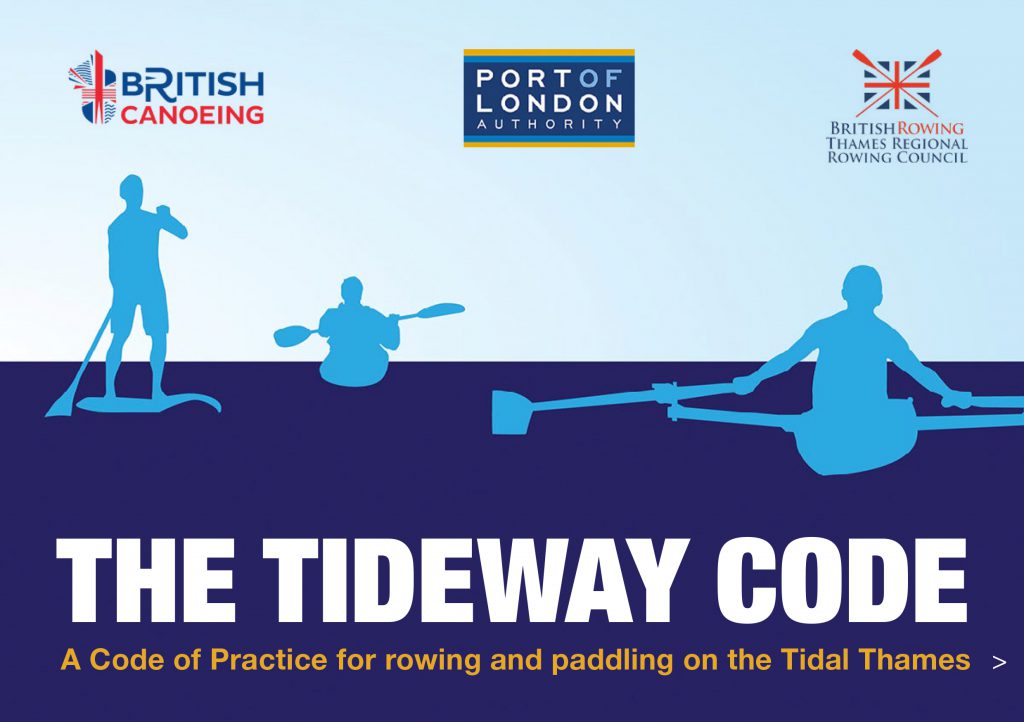Wherever canoeists go, campaigns follow – for access to waterways – to keep rivers flowing freely – to clean up rivers and beaches – to protect rivers from non-native species – to protect marine wildlife – to #ShareTheSpace – so depending on where we go, canoeing responsibly may involve navigating expectations as well as waterways!
CHOICES ON AND AROUND THE WATER
Even in areas where rights of access to waterways and expectations of recreational canoeing are under-developed, we're likely to find ourselves navigating local sensibilities as well as waterways.
Where canoeing or other use of unpowered craft is a commonplace activity, authorities may have written expectations into Regulations and Guidelines.
Where strong national associations exist, professionals and enthusiasts may also be forceful in promoting ideas of good practice. Pressures to conform may also come from other stakeholder groups (e.g. River Usk, River Dee).

We might look to draw on local knowledge based on experience on and around the waterways, but four broad headings cover much that gets encountered around the world: supporting local communities, respecting other water users, protecting flora and fauna and getting involved (contributing).
Online information sources for canoeists can be extensive where authorities are encouraging activity. For example, British Canoeing drive Go Paddling, Clear Access, Clear Waters and The Paddler's Code, and work with partners such as the Canal and River Trust.

SUPPORTING LOCAL COMMUNITIES
If our vision of canoeing involves discretely going "off grid" in a remote or wilderness setting, local communities might never even become aware of our comings and goings - at least until someone needs a call-out.
In more popular areas, accommodating canoeists could conceivably bring significant advantages to the local economy, but perhaps alongside pressure on infrastructure.
Issues tend to be region-specific. E.g. pressure on narrow access roads and on popular parking spots around upland rivers in Snowdonia (North Wales).
Even in areas where canoeists are mostly welcomed, call-outs and pressures on infrastructure invite challenges about our Social License to Operate.
One aspiration for canoeists might be ensuring future canoeists will find an even warmer welcome in future than canoeists have done in the past. Such aspirations have driven initiatives such as The Paddler's Code, and can involve anything from buying locally (e.g. catering) to getting involved (contributing).
Formal priorities for local communities might be spelt out, as they are for the waters controlled by the Broads Authority. Informal support can mean anything from route-planning to avoid clashing with local events through to buying locally to support community businesses.
RESPECTING OTHER WATER USERS
Throughout much of the world, canoeists are able to get away from others and to have waterways to themselves, but other waterways-users may be engaged in anything from surveying or dredging to triathlon or wind-surfing.
One way or the other, pressure commonly exists to #ShareTheSpace with other water users, from anglers to commercial rafting providers.
For hotspots such as the Wye, on the England-Wales, detailed guidance may be produced. See, for example, The River Wye Paddle Guide (featuring a hugely popular river on the border of England and Wales).
In many parts of the world, canoeing is regulated, especially for busier waterways, for ecologically-sensitive zones, for distinct user-groups or for key times-of-year. Canoeists may be expected to get permits, licenses or insurance before going afloat. Local bylaws of official “guidelines” may also be hugely significant.
Attitudes to canoeists tend to vary enormously even within broadly sympathetic communities. In some areas, past flashpoints may mean encountering understandable sensitivities among anglers, wild swimmers, motor-boaters, dinghy sailors, kite-surfers, jet-skiers, etc.

PROTECTING FLORA AND FAUNA
Campaigning levels vary across the world, but the science does not.
Canoeists who move between waterways can all too easily contribute to the spread of invasive, non-native species.
Good practice, pretty much everywhere, involves washing and drying equipment, footwear and clothing before transferring to a new waterway.
Specific local considerations on rivers might include ecologically sensitive launch spots or spawning grounds.
In some environments, disturbance of ground-nesting birds, waterfowl or marine mammals might be major issues, with guidelines available for times of year to avoid and on minimising disturbance. For an informed blog, see Paddling Lightly by Dr Lou Luddington and follow links to the Pembrokeshire Marine Code, etc.
The principles of Leave No Trace might be embraced in any canoeing environment, and even country-specific guidance (e.g. from the Scottish Canoe Association) may be useful elsewhere. Local canoe, kayak and SUP groups may offer guidance on specific local concerns.
GETTING INVOLVED (CONTRIBUTING)
Campaigns increasingly encourage canoeists to improve the prospects for all water users, and for wildlife, by ensuring issues and hazards are reported.
Environmental initiatives range from improving water quality to controlling the spread of invasive, non-native species and from river and beach clean-ups to major projects such as re-wilding alongside “slow the flow” natural flood management initiatives.
In some areas, environmental initiatives run alongside access campaigns such as the one run by the Bluespace Access Conservation Trust.
Initiatives work at many scales, from globally (e.g. River Cleanup), through nationally (e.g. American Rivers, Balkan River Defence and The Rivers Trust) to local groups on a single stretch of water (e.g. Save Our Rivers, which started with Afon Conwy campaigning, and the conservation-oriented River Waveney Trust).
In places with formal systems, reporting of issues can be straightforward (e.g. with the GB Non-native species secretariat, and with British Canoeing's Online Reporting Form), but social media (e.g. ADKForum, Canadierforum) commonly offer informal channels to other canoeists.



Canoeing Responsibility: Culture, Ethos, Social License